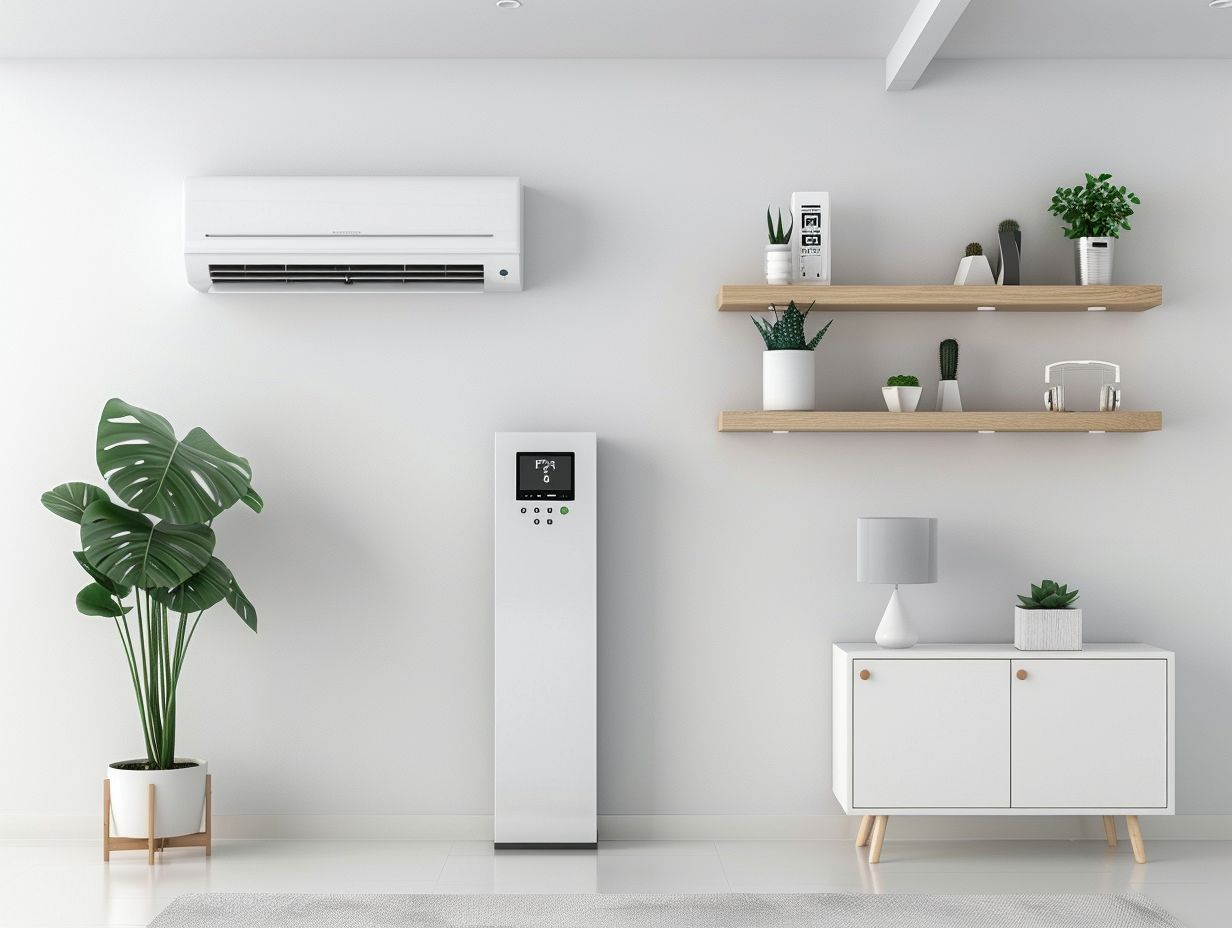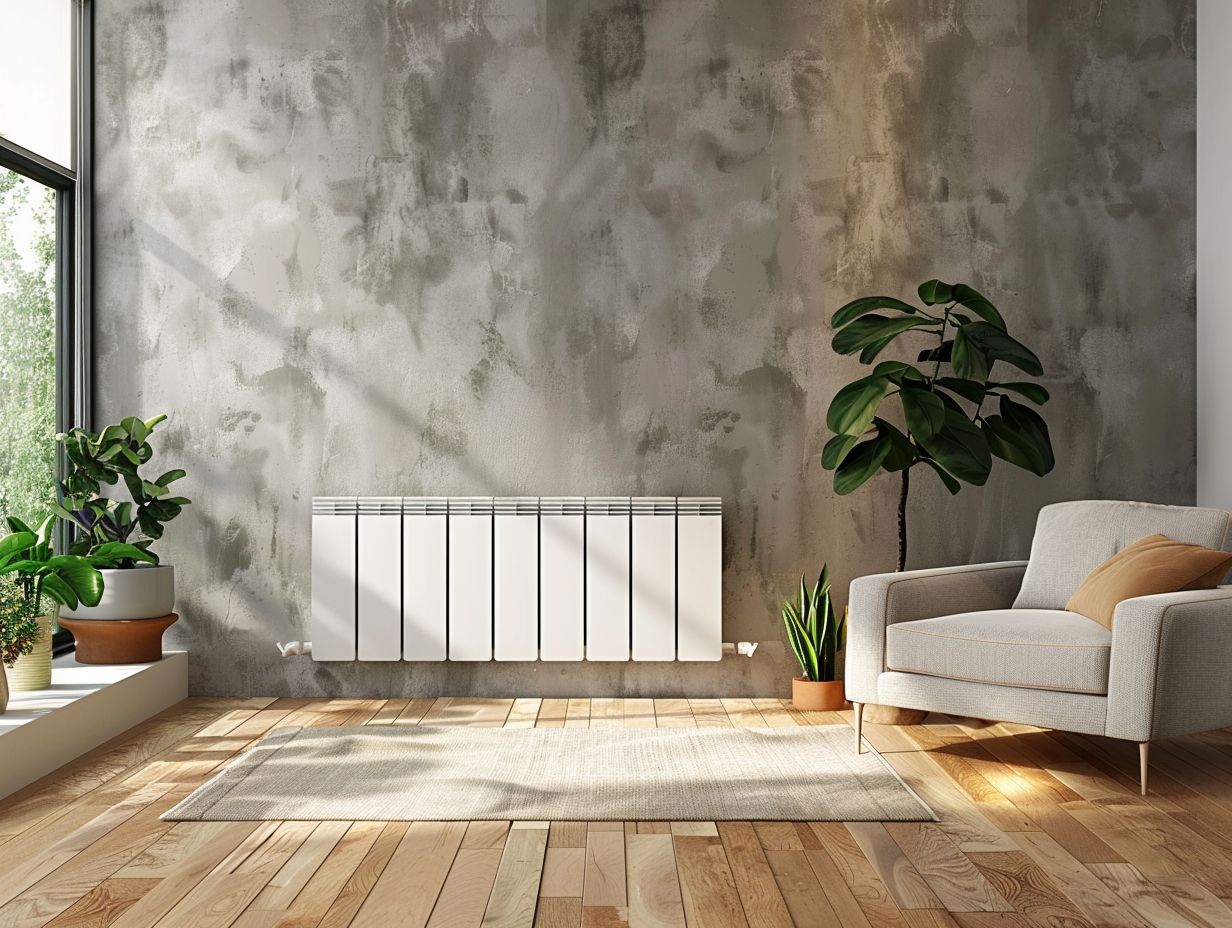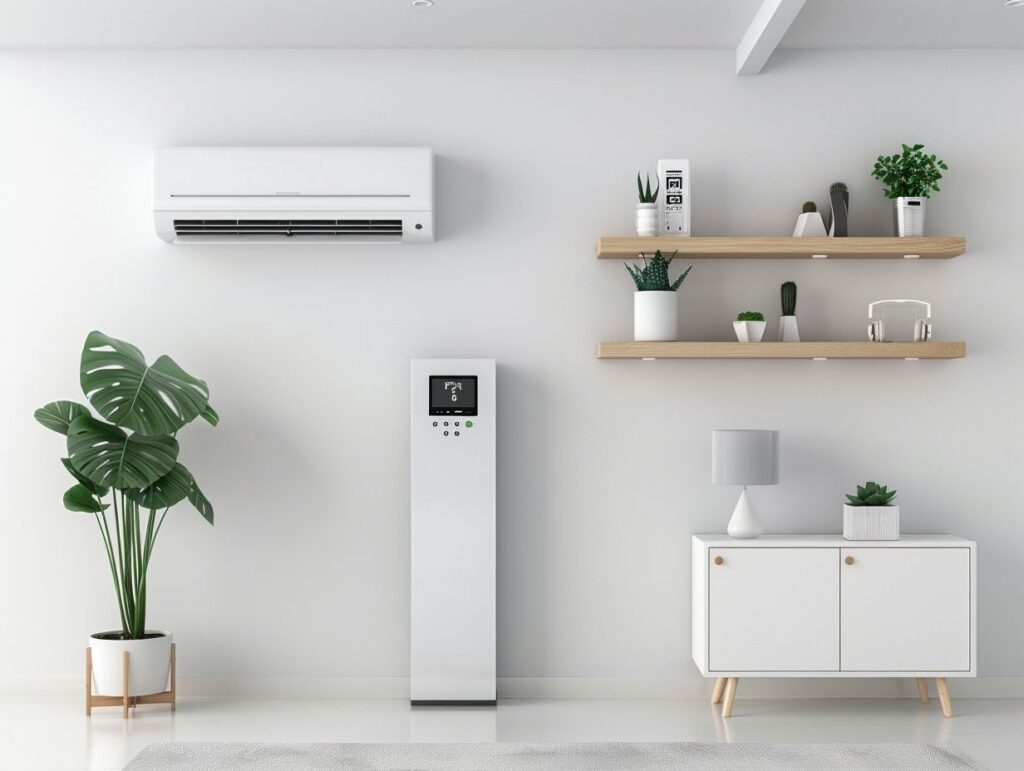When considering different heating options for your home, it is common to feel overwhelmed by the myriad of choices available. In this analysis, the pros and cons of electric heating and traditional radiators are compared, taking into account factors such as cost, efficiency, and environmental impact.
By the conclusion of this comparison, you will gain a clearer insight into which heating method may best suit your needs, based on considerations such as your home’s layout and your lifestyle.
Take the opportunity to explore and discover the optimal heating solution for your specific requirements.
Key Takeaways:

- Electric heating is a modern, versatile option with advantages such as precise temperature control and low maintenance, but it can be expensive to install and may not be suitable for large spaces.
- Traditional radiators have been a reliable heating method for years, offering affordability and even distribution of heat, however they may not be as energy efficient and can take up significant space in a room.
- When deciding between electric heating and traditional radiators, consider factors such as cost, efficiency, and environmental impact, as well as your home’s specific needs and your lifestyle preferences. There is no one-size-fits-all solution, so choose what works best for you.
Explanation of Electric Heating and Traditional Radiators
When considering home heating options, you are often faced with the choice between electric radiators and traditional radiators connected to central heating systems. Electric radiators utilise electricity to produce heat, while traditional radiators are dependent on a central heating system typically powered by gas or alternative fuel sources.
Electric radiators are recognised for their rapid heat-up capabilities, making them effective for heating individual rooms efficiently. In contrast, traditional radiators offer a more gradual and consistent warmth throughout a house by circulating hot water or steam.
In terms of energy efficiency, electric radiators have the benefit of precise temperature control and the ability to heat specific areas only, reducing energy waste. On the other hand, traditional radiators may result in heat loss through the central heating system’s pipes. Nevertheless, advancements in technology have enhanced their efficiency in recent years.
Pros and Cons of Electric Heating
Electric heating systems present various advantages, such as energy efficiency, precise temperature regulation through thermostats, and the potential to be cost-effective in both installation and maintenance.
However, it is important to be aware of the disadvantages associated with electric heating, including the possibility of higher energy consumption resulting in elevated heating costs.
Advantages and Disadvantages
Electric radiators offer several advantages, including rapid heat emission, simple installation, and the ability to establish heating zones for personalised comfort. However, it is worth noting that they may incur higher operational expenses when compared to certain conventional heating systems.
The efficiency of electric radiators in converting energy into heat is noteworthy, resulting in long-term savings. Their uncomplicated installation procedure makes them a convenient option, particularly in areas where traditional heating systems may present difficulties.
The capability to customise temperature settings in various rooms through programming electric radiators provides unmatched control over heating requirements. Despite these advantages, the downside of increased operational costs may act as a deterrent for individuals seeking cost-efficient heating solutions.
Pros and Cons of Traditional Radiators

Traditional radiators, integral components of central heating systems typically powered by gas boilers, present benefits such as thermal inertia and reduced operating expenses. Nevertheless, they may necessitate routine upkeep and could exhibit lower energy efficiency when contrasted with contemporary electric models.
Advantages and Disadvantages
When considering traditional radiators connected to central heating systems powered by gas boilers, you will find advantages such as consistent heat output and compatibility with existing setups. However, it is important to note that they may be less energy-efficient and require regular maintenance to ensure optimal performance.
One notable advantage of traditional radiators is their reliability. These radiators have built a solid reputation for their durability and ability to deliver steady warmth throughout rooms.
With a simple construction, they are less susceptible to technical malfunctions compared to more intricate heating systems. Nonetheless, their energy inefficiency can result in higher gas bills, particularly in older models lacking modern energy-saving capabilities.
Comparison of Cost and Efficiency
When comparing the cost and efficiency of electric radiators against traditional radiators in central heating systems, you should consider factors such as BTU output, power consumption in watts, and the technology used in each system. These elements play crucial roles in determining which option is more suitable for your specific heating needs.
Electric Heating vs Traditional Radiators
When considering the choice between electric heating and traditional radiators, factors such as energy consumption, power output, and the use of renewable energy sources play a crucial role. Electric radiators are known for their efficient heating capabilities and precise control, whilst traditional radiators provide consistent warmth through thermal fluid circulation.
Electric heating systems have the benefit of being more energy-efficient compared to traditional radiators, as they can convert a higher percentage of electricity into usable heat. These systems often have a quicker power output, enabling quicker heating of a space.
Conversely, traditional radiators excel in retaining heat even after the heating source is turned off, offering prolonged warmth. In terms of utilising renewable energy sources, electric heating systems are more adaptable, making them a greener option for those seeking sustainable heating solutions.
Environmental Impact

When analysing the environmental impact of heating solutions, such as electric radiators and traditional heating systems, it is crucial for you to consider the current energy crisis era characterised by price volatility and concerns over fossil fuel usage.
Evaluating the carbon footprint of these heating options and assessing the integration of renewable energy sources is essential for making sustainable choices in heating.
Assessing Sustainability and Carbon Footprint
When evaluating the sustainability and carbon footprint of electric radiators versus traditional heating methods, you must consider factors such as their energy efficiency, reliance on renewable energy sources, and overall environmental impact. Opting for heating solutions with lower carbon footprints is essential for promoting a more sustainable future.
Electric radiators are becoming increasingly popular due to their energy efficiency, providing quick room heating without energy wastage. On the other hand, traditional heating systems often exhibit higher energy consumption levels, resulting in elevated carbon emissions.
The incorporation of renewable energy sources like solar or wind power is pivotal in mitigating the environmental impact of heating systems. By utilising renewable energy for heating purposes, you not only reduce carbon footprints but also advocate for a more environmentally friendly approach to energy consumption.
Which Heating Method is Right for You?
When determining the ideal heating method for your home and lifestyle, you should carefully assess factors such as heating demand, system compatibility, and personal preferences. Your choice between electric radiators or traditional heating systems will depend on your specific heating requirements and the level of control and convenience you desire.
Factors to Consider for Your Home and Lifestyle
When selecting the appropriate heating solution, you should take into account factors such as your home’s heating requirements, the efficiency levels of various heating technologies, and your preferences for energy-efficient attributes.
By assessing these elements, you can determine whether electric radiators or traditional heating systems align better with your home and lifestyle necessities.
Energy efficiency stands as a critical consideration in the choice of a heating system. Recent developments in heating technology have brought about innovative features like programmable thermostats, smart controls, and zoning options, all of which contribute to energy conservation.
The insulation of your residence plays a crucial role in the effectiveness of your heating system. To enhance heat retention and minimise energy loss, it is imperative to ensure proper insulation in walls, floors, and roofs.
By taking these factors into consideration, you can establish a warm, environmentally conscious living space while simultaneously reducing your energy expenditures.
Frequently Asked Questions

What is the difference between electric heating and traditional radiators?
Electric heating uses electricity to generate heat, while traditional radiators use heated water or steam from a central boiler system to warm up a room.
Which type of heating is more energy efficient?
Electric heating is typically more energy efficient because it doesn’t lose heat through a central heating system, like traditional radiators do. However, the type of electric heating system and usage habits can also affect energy efficiency.
Are electric heating and traditional radiators equally effective in heating a room?
It depends on the specific type and size of the heating system, as well as the insulation and layout of the room. In general, both types can effectively heat a room, but electric heating may be able to distribute heat more evenly and quickly.
Which type of heating is more cost-effective?
Again, this depends on various factors such as energy rates, usage habits, and type of heating system. In some cases, electric heating may be more cost-effective due to its efficiency, but in others, traditional radiators may be more cost-effective due to lower energy rates or maintenance costs.
Do electric heating and traditional radiators require different maintenance?
Yes, electric heating systems typically require less maintenance as there are no moving parts or a central system to maintain. Traditional radiators may require regular maintenance and repairs to ensure optimal functioning.
Which type of heating is more environmentally friendly?
In terms of carbon emissions, electric heating is generally more environmentally friendly as it doesn’t rely on fossil fuels like natural gas or oil. However, the source of electricity and energy efficiency of the system can also play a role in its impact on the environment.

